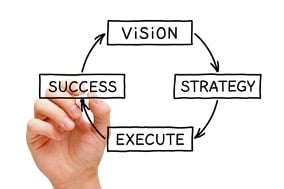Healthcare has been significantly disrupted during the COVID crisis. And, the impact will have a lasting effect even with the promise of a vaccine. Over the past few weeks, I’ve had the opportunity to speak with more than a dozen Chief Human Resource Officers (CHROs) from large and small health systems across the country. And, one thing I heard repeatedly during each conversation was that the healthcare industry is at an inflection point and those systems that adapt quickly and create new sustainable structures and norms will survive and thrive post-COVID.
Executive leadership has been tested throughout this period, and, now CHROs find themselves sitting in the pole position to drive systemic changes that can determine the winners and losers in Healthcare.

What’s Needed
During one of my recent discussions, a CHRO from a 700-bed health system stated, “It became quite clear to us during this crisis that we needed to lead differently. However, we learned not all our leaders had the right skills to quickly adapt their teams, assume new roles, and build strong communication channels.”
This was a consistent theme in most discussions. Existing gaps in leadership, skill sets, and newfound inefficiencies in processes and procedures have surfaced as a result of the COVID crisis. Consequently, many CHROs are looking at the new landscape from a strategic perspective. The new challenges emerging are not barriers, but a roadmap that will enable them to successfully navigate their health system through the changes needed, not just during this crisis but beyond it. They are innovating for a sustainable future in healthcare.
Healthcare, much like Education, in the US is often described as a slow adopter to change and innovation. Yet, this latest event has organically inspired a wave of change that will no doubt impact culture and how leaders promote innovation and efficiencies. As one CHRO from a large 10,000-bed health system stated, “This cultural and strategic shift will not be short-term. We need to embrace this, create and invest in new systems and processes that can operationalize new best practices. We must make this our new norm in order to survive long-term.”
Key Takeaways
Despite the stressful career-changing past few months, I felt a renewed energy from all of the CHROs I spoke with. The key takeaways from my conversations across the country are:
- Enhance the frequency of bilateral communication at all levels, but make it relevant, personalized, and timely in order to meaningfully engage with staff.
- Seek out and embrace new processes to create administrative efficiencies in order to make health systems more nimble and adaptable to future challenges.
- Look at all our roles with a new lens and leverage opportunities where working from home or Telemedicine can enhance the experience for both patient, provider, and staff.
- Create a structure that empowers staff to be part of the innovation and solutions, and take every opportunity to remove the “red tape” that prevents ideas from flourishing in a timely manner.
Summary
CHROs are acutely aware of the unique opportunity that sits in front of them. They are in a position to drive systemic change throughout their health systems that will impact how they organize and serve those in need in a manner that yields financial outcomes, quality of care, staff satisfaction, and safety. I’m excited to see how they adapt to and shape the future of Healthcare.
Check out my latest blog on building operational resiliency…